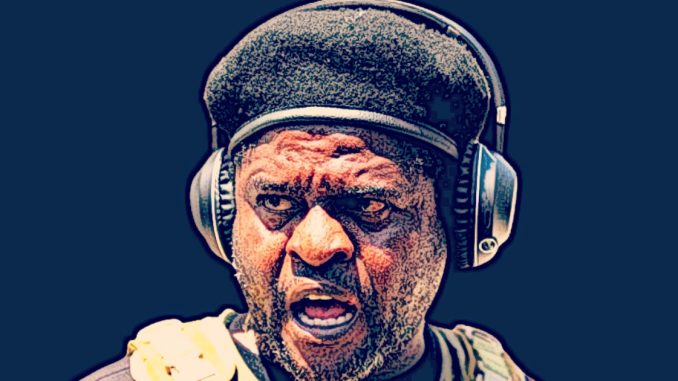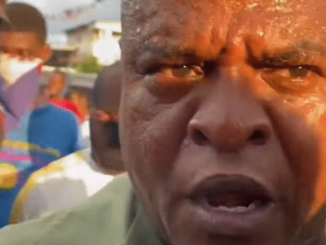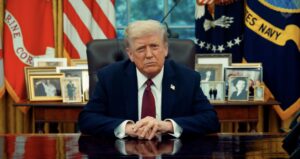
| Published August 17, 2025
In a dramatic escalation of Haiti’s ongoing security crisis, Erik Prince, the founder of the controversial private military company Blackwater, is set to deploy nearly 200 personnel to the island nation. This move comes amid escalating gang violence and a humanitarian catastrophe that has left over 1,500 dead and displaced more than 1.3 million people in recent months .
Erik Prince’s Mercenary Deployment
Prince’s company, Vectus Global, has secured a one-year contract with Haiti’s interim government to combat the powerful gang federation Viv Ansanm, led by Jimmy “Barbecue” Cherizier. The deployment will include personnel from multiple countries and is aimed at reclaiming gang-controlled areas and restoring tax collection systems post-conflict .
Critics warn that employing private military contractors could further undermine Haitian sovereignty and potentially breach U.S. law if unauthorized. The deployment follows the limited success of a UN-backed Kenyan-led police mission and comes amid significant turmoil, including mass prisoner escapes and a three-month shutdown of Haiti’s main airport, all driven by gang activity .
U.S. Indictment and $5 Million Reward for Cherizier
Simultaneously, the U.S. Department of Justice has unsealed an indictment against Jimmy “Barbecue” Cherizier and his associate, Bazile Richardson, for conspiring to violate U.S. sanctions. Cherizier, a former Haitian National Police officer and head of the G9 gang alliance, is accused of orchestrating numerous violent acts in Haiti, including the 2018 La Saline massacre. Despite being sanctioned in 2020 under the Magnitsky Act for human rights violations, he allegedly continued to receive financial support .
The U.S. State Department has placed a $5 million bounty on Cherizier through its Transnational Organized Crime Rewards Program. Additionally, the U.S. designated Cherizier’s gang alliance, Viv Ansanm, and Gran Grif as foreign terrorist organizations, making material support to them a prosecutable offense .
This handout image released by the Federal Bureau of Investigation (FBI) on August 12, 2025, shows a wanted poster for Haitian gang leader Jimmy “Barbecue” Cherizier.FBI/AFP via Getty Images
U.S. Attorney for the District of Columbia Jeanine Pirro holds a press conference announcing the indictment of the Haitian gang leader Jimmy “Barbecue” Cherizier for conspiracy to violate U.S. sanctions, at the Department of Justice, in Washington, D.C., U.S., August 12, 2025.
Leader of the “G9 and Family” gang, Jimmy Cherizier, better known as Barbecue, shouts slogans with his gang members after giving a speech, as he leads a march against kidnappings, through the La Saline neighborhood in Port-au-Prince, Haiti, Oct. 22, 2021.
Gang leader Jimmy “Barbecue” Cherizier is seen in Port-au-Prince, Haiti, March 5, 2024.
 Implications
Implications
Here’s a detailed breakdown of the implications of Erik Prince’s PMC deployment and the U.S. indictment of Jimmy “Barbecue” Cherizier for Haiti:
1. Security Implications
-
Short-term stabilization: The deployment of 200 private military contractors (PMCs) could help reclaim gang-controlled areas and protect critical infrastructure, providing temporary relief for citizens.
-
Risk of escalation: Armed intervention by foreign PMCs could provoke violent retaliation from gangs, potentially increasing civilian casualties if operations are not tightly coordinated with Haitian authorities.
-
Sovereignty concerns: Reliance on foreign mercenaries may undermine the Haitian government’s legitimacy and reinforce public perception of external control.
2. Political Implications
-
Pressure on Haitian authorities: The presence of PMCs may strengthen the interim government’s negotiating position against gangs but also exposes it to criticism for outsourcing national security.
-
U.S.-Haiti relations: The U.S. indictments and reward signals direct involvement in Haitian law enforcement priorities, potentially increasing influence over Haiti’s internal affairs.
-
Potential backlash: Haitian citizens or political factions may view foreign military presence as neo-colonial interference, leading to protests or resistance.
3. Legal and Ethical Implications
-
U.S. legal scrutiny: PMCs operating abroad face complex legal boundaries; unauthorized engagement could violate U.S. law or international agreements.
-
Human rights concerns: History with Blackwater shows risks of civilian harm, misconduct, or excessive use of force, which could provoke human rights investigations.
4. Economic Implications
-
Short-term disruption: Gang-controlled areas may experience temporary relief, enabling businesses to reopen and taxes to be collected.
-
Long-term dependency: Continued reliance on PMCs could divert resources away from strengthening Haitian security institutions, delaying sustainable recovery.
5. Regional and International Implications
-
Model for intervention: If successful, this could encourage other nations or private entities to use PMCs in fragile states, potentially normalizing privatized security.
-
Deterrence against gangs: The $5 million U.S. reward for Cherizier sends a strong signal that international accountability is possible, potentially deterring criminal activity.
-
Complex alliances: Gang networks may seek foreign support or diversify criminal partnerships, leading to broader regional instability.
 Overall Takeaway:
Overall Takeaway:
The deployment of Erik Prince’s private military contractors and the U.S. indictment of gang leader Jimmy “Barbecue” Cherizier represent a dramatic escalation in Haiti’s fight against organized crime. In the short term, these actions may disrupt gang operations, restore limited security, and signal international resolve against lawlessness. However, the involvement of foreign mercenaries and external legal pressures also raises serious concerns about Haitian sovereignty, the potential for civilian harm, and long-term dependence on outside forces.
Ultimately, while tactical interventions and financial incentives may offer temporary relief, sustainable peace in Haiti will depend on strengthening domestic institutions, improving governance, and addressing the root causes of gang violence and social instability. Without these measures, even the most aggressive external efforts risk becoming a stopgap rather than a solution.
SOURCES: THE GATEWAY PUNDIT – Blackwater’s Erik Prince to Send 200 PMCs to Haiti Hell, as US Indicts Gang Leader Jimmy ‘Barbecue’ Cherizier, and Offers $5 Million for Information Leading to His Capture
THE NEW YORK POST – Feds unseal charges against Haitian gang leader ‘Barbecue’ who has $5M bounty on his head
AP NEWS – Blackwater founder to deploy nearly 200 personnel to Haiti as gang violence soars









Be the first to comment